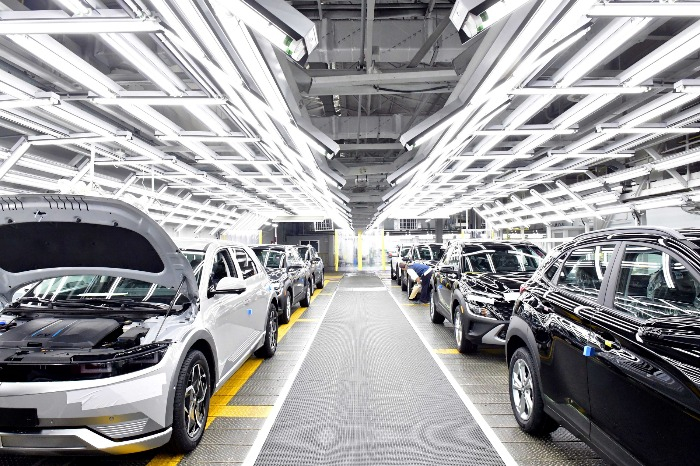Hyundai Motor Co. has scrapped
a plan to build a liquefied natural gas (LNG)-fueled plant to power its main production lines in South Korea due to a growing consensus that excludes natural gas from the list of environmentally-friendly energy sources.
The decision comes after the European Parliament’s environment and economy committee voted against the classification of gas and nuclear energy as sustainable investments last month.
Although a formal vote by the European Parliament is due next week, the committee’s decision raises the possibility that natural gas might not be considered eco-friendly energy.
“We had considered building an LNG plant as part of an effort to achieve zero carbon emissions, but we decided to rescind the plan in line with a global consensus to cope with climate change,” Hyundai Motor said on Friday.
Last May, the country's top carmaker drew up a plan to build an LNG-powered thermal power plant to self-supply more than 70% of its energy needs. It had planned to operate its first LNG plant from 2025 within the Ulsan complex, 310 km southeast of Seoul.
Regarding the plan, it received the request by the Climate Group to clarify its LNG plant construction plan. The non-profit organization leads the RE100 campaign, under which companies will make a full switch to renewable energy by 2050.
Last April, Hyundai Motor joined
the RE100 multinational campaign. But the RE100 initiative does not count LNG as a renewable energy source, which might put Hyundai under pressure.
The carmaker's announcement on Friday could affect
other Korean companies, which are preparing to build LNG plants to power their production lines.
Combustion of LNG emits about half as much carbon dioxide as coal. But in the long term, companies need to shift into hydrogen fuel away from LNG to achieve carbon neutrality, said an industry official.
“We will install solar panels at our major factories and self-generate electricity from renewable energy sources,” said a Hyundai Motor official.
KEPCO Co. has a monopoly on power transmission and distribution in South Korea. It has six power-generating companies under its wing.
Write to Il-Gue Kim at
Black0419@hankyung.comYeonhee Kim edited this article



